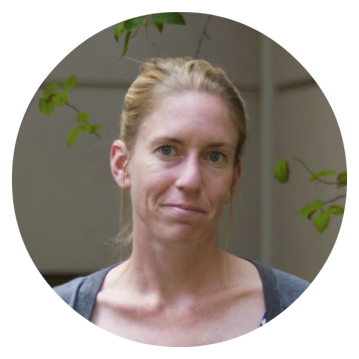Today we wrap up highlighting our “local” poets (faculty and alumni). We sent a short set of questions to each, and are posting their responses. Here’s what Joanna Doxey had to say.
Why does poetry matter?
I’m not sure it does. Honestly. But what I do know is that I look to words for connections to the earth and to people in times of stress and extreme fragility and in this I find myself in a community. I’m lifting the word/idea “fragility,” from a speaker (maybe DBQ, maybe Stewart…. I’m not sure) at the recent Crisis & Creativity display/reading last week which showcased poetry, artwork, and community from the C&C group’s ruminations on our dying planet and “thinning” species. So there’s something to be said about how words can’t say enough, but poetry steps into the gaps and silences. I don’t know if it explains as much as creates questions and honors the necessary silences.
Why do you write poetry and not some other genre?
I do actually write other genres! I try sometimes to write poemy-poems and often fail, especially if I’m trying to write like somebody else. I don’t prioritize any genre (or hope I don’t) and think that they can’t exist in a vacuum without each other. I recently helped to judge a “climate fiction” contest, and that has led to my starting (or having the idea of a start) of a climate fiction story which actually might just end up being a lyric essay.
How did you find poetry?
I hated poetry in undergrad. I was a reluctant English major who drifted through the major while still keeping an eye out for philosophy, women’s studies, sociology, and math (yes, math! Math is poetry!). Because I was drifting and self-advising, I had to play catch up in my final year, taking more classes than required for two trimesters (my school was on trimesters). In one of those totally overloaded, stressful, isolating, exhausting semesters, I took a class with Ed Pavlic. I did NOT consider myself a poet at the time, but after the midterm critical essay depleted me in a usefully creative way, I opted to submit a portfolio for the final rather than another 20 page paper. Professor Pavlic was the first to encourage me in poetry, but in a weird way, my classes were starting to create a synergy. I was drawing from Sociology and Geology, as well as my lit courses, in order to reveal the world in words. It was empowering and strange.
What are you working on now?
Peak Advising. Just kidding…… I’ve got two rotating and growing chapbook-sized things that might be something or might be total failures. In fact, one collection is currently titled, “Failure Poems.” I don’t do well with discrete individual poems – most everything is a project that I step away from and return to from time to time. Also, I’m an incredibly SLOW writer (and reader) so their accumulation has been sloth-paced. Writing is excruciating.
What poem, poet, or poetry collection is your favorite?
Dickinson, always, but recently my favorite collection of poetry has been Amy Berkowitz’s Tender Points, which just hurts so good. I also enjoyed House A by Jennifer S. Cheng. Bhanu Kapil and Maggie Nelson (esp on the essay side) are also favorites.
Joanna Doxey (Alumna, MFA Creative Writing: Poetry) is currently an Academic Support Coordinator for students majoring in Ethnic Studies, Philosophy, and English. She published her first collection of poetry, Plainspeak, WY, at the end of 2016 – “Residing in the brutally harsh winters of the Wyoming landscape, Plainspeak, WY is a rumination on self as wilderness. A book of juxtapositions, Doxey leans on the glacial with its inherited dirges and ostensible timelessness, contrasting stoic rock with lamenting body. Ultimately, it is a book of recollection, of broken hearts and slowly changing landscapes.” Most recently, a few of her poems were published in the latest issue of Ghost Proposal (http://ghostproposal.com/), and she was invited by the Sigma Tau Delta chapter at Union College (NY), her undergraduate alma mater, to speak and read her poetry.
